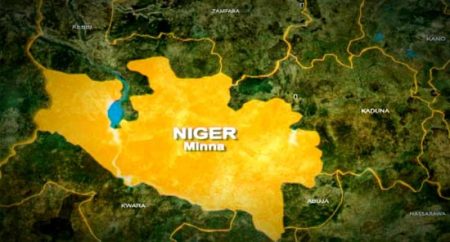The Impact of Dangote Refinery on Aviation Fuel Availability and Pricing in Nigeria
The Nigerian aviation industry has long grappled with the challenge of volatile and exorbitant aviation fuel prices, a critical component that significantly influences operational costs for airlines. However, the entry of the Dangote Refinery into the market has ushered in a period of relative stability in fuel supply, albeit at a price point that remains a concern for industry players. Osita Okonkwo, the Chief Operating Officer of United Nigeria Airlines, acknowledges the positive impact of the Dangote Refinery on fuel availability, confirming a consistent supply that has eliminated the previously prevalent scarcity. This stability offers a crucial reprieve for airlines, enabling them to plan operations more predictably and mitigate the disruptions caused by fuel shortages. While the availability issue has been largely addressed, the price of aviation fuel remains a significant hurdle, highlighting the complex interplay between supply, demand, and external economic factors within the Nigerian aviation fuel market.
Okonkwo’s observations shed light on the current pricing dynamics. While acknowledging the high cost, hovering between ₦1050 and ₦11200 per litre in Lagos, he points to its stability as a positive development. This stability, attributed primarily to the Dangote Refinery’s consistent supply, marks a significant shift from the previous era of fluctuating prices and unpredictable availability. The refinery’s substantial output has effectively met a considerable portion of the industry’s demand, minimizing the impact of external market forces and providing a more predictable pricing landscape. However, the current price point, though stable, remains significantly higher than historical levels, presenting a continued challenge for airlines striving to maintain profitability in a competitive market.
The influence of the Dangote Refinery extends beyond mere availability. Okonkwo notes that major fuel distributors, including MRS, and potentially even the Nigerian National Petroleum Company (NNPC), are sourcing their aviation fuel from the refinery. This widespread adoption of Dangote’s supply underscores the refinery’s pivotal role in reshaping the market dynamics. By becoming a dominant supplier, the refinery exerts considerable influence on pricing and availability, effectively setting a benchmark for the industry. This shift in supply dynamics has contributed to the observed price stability, reducing the impact of speculative pricing and market manipulation that previously characterized the sector. However, the current price levels, while stable, remain a concern for airlines, illustrating the need for further market adjustments to achieve a more sustainable pricing equilibrium.
Okonkwo expresses optimism that a strengthening Naira against the US dollar could contribute to lower aviation fuel prices. Since aviation fuel is typically priced in US dollars, fluctuations in the exchange rate directly impact the cost for Nigerian airlines. A stronger Naira would effectively reduce the cost of importing fuel, potentially leading to lower prices for airlines. This highlights the vulnerability of the Nigerian aviation sector to external economic factors, emphasizing the need for policies that promote exchange rate stability. While the Dangote Refinery provides a domestic supply source, the pricing remains linked to global oil markets and currency fluctuations, underscoring the interconnectedness of the Nigerian economy with global economic forces.
Despite the benefits of increased supply and price stability, Okonkwo reiterates the industry’s desire for lower fuel prices. He contrasts the current prices, ranging from ₦1050 to ₦11200, with the significantly lower prices of ₦250 to ₦300 per litre prevalent when United Nigeria Airlines commenced operations. This stark difference highlights the significant cost burden that high fuel prices impose on airlines, impacting their profitability and competitiveness. While the stability offered by the Dangote Refinery is welcomed, it is clear that achieving truly sustainable growth in the Nigerian aviation sector requires a further reduction in fuel costs. This calls for a multi-pronged approach, addressing not only exchange rate fluctuations but also exploring strategies to optimize refinery operations and distribution efficiencies to further reduce costs.
The entry of the Dangote Refinery has undoubtedly brought a welcome degree of stability to the Nigerian aviation fuel market. Consistent supply and predictable pricing have mitigated the challenges of scarcity and volatile price fluctuations. However, the current price levels remain a significant concern for airlines, highlighting the need for continued efforts to reduce costs. A stronger Naira, coupled with potential improvements in refinery efficiency and distribution networks, could contribute to lower fuel prices, paving the way for a more sustainable and competitive aviation industry in Nigeria. This emphasizes the importance of a holistic approach that addresses both domestic and international factors influencing fuel pricing to ensure the long-term health and growth of the Nigerian aviation sector.














